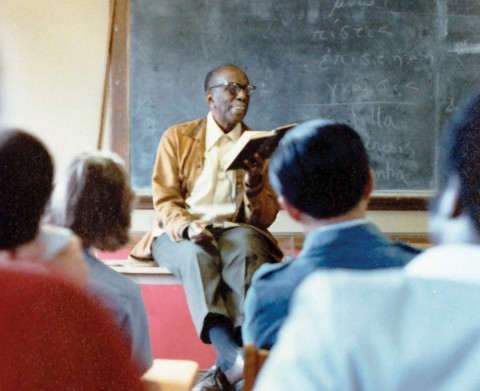Howard Thurman’s contemplative nonviolence
The pastor and mentor to Martin Luther King formed a vision of resistance around prayer, not politics.

Revered by the leaders of the civil rights movement for his mysticism, not his activism, and for his pastoral presence, not his political strategy, theologian Howard Thurman is to many people a somewhat perplexing figure in American religious life. A man committed above all to prayer and spiritual discipline, he was a key inspirational figure for Martin Luther King Jr. Thurman has recently been introduced to a new generation through the film Backs against the Wall: The Howard Thurman Story, produced by Martin Doblmeier and Journey Films. (The film, which has been aired on PBS, won a regional Emmy award for best historical documentary.)
As the film recounts, Thurman was born in 1899 and grew up in deeply segregated Daytona, Florida. His grandparents, who had been slaves on a Florida plantation, introduced him to the Christian faith and enabled him to attend one of three high schools for African Americans in all of Florida. Ordained as a Baptist minister, he attended Rochester Theological Seminary and was a pastor for five years before becoming a teacher of religion and philosophy at Morehouse College and Spelman College in Atlanta. In 1932 he became dean of the chapel at Howard University in Washington, D.C.
In his biography, With Head and Heart, Thurman describes the structures of racism and his personal encounter with them, from Florida to Atlanta and from Atlanta to Washington, D.C. In those days, Jim Crow laws were in full force. It was the era of lynchings and a resurgent Ku Klux Klan.





